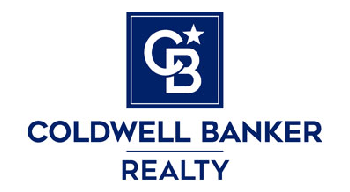We learn from our mistakes and house buying is no exception. The first time you buy a home you feel like you are drowning in paperwork and acronyms. You don’t know what you don’t know and unless you work with a quality realtor this ignorance can lead to some very costly errors. Here are six common errors made by first time home buyers.

1. Starting with a down payment that is too small.
It’s tempting to put down as little money as you can. We all love a bargain and the thought of moving into your dream home for 3%, 5% or even 0% is very tempting. But over the life of the mortgage the difference between 5% and 20% could mean you’re paying back hundreds of thousands of dollars more than you borrowed.
Also be aware that if you put down less than 20% you will almost certainly have to take out Private Mortgage Insurance (PMI) which will cost you about $170 per month for every $200,00 you borrow.
What you should know about about Private Mortgage Insurance
Most home buyers will make a down payment of 20%, in fact some lenders require that. Primary Mortgage Insurance kicks in if the borrower is unable to make a 20% deposit. The lender looks at the loan as a riskier proposition and PMI is their way of taking out some insurance to cover that extra risk.
- PMI is usually paid by the borrower as part of their monthly mortgage payment.
- The magic number here is 22%; so long as the borrower is current on their payment PMI can be removed when equity in the home reaches 22% (or, viewed another way, when the balance due reaches 78%).
- PMI payments are usually somewhere between 0.5% and 1% of the entire loan so it is essential that the borrow keep a close eye on the state of their equity; you want to remove that extra burden as quickly as possible.
- For every $200,000 of loan PMI is approximately $170 per month.
Of course you don’t always have the choice to put down a huge deposit but it’s smart to think this through carefully. Play around with the mortgage calculator below to see what a huge difference a few percentage points can make.
2. Draining your savings
But the other side of this coin is that you certainly do not want to empty your savings to put down a deposit. Especially if you are buying an older house you will almost certainly face some repairs and unexpected expenses. In this case you will be relieved to have something in reserve. When you are planning your down payment make sure that you factor in things like closing costs, PMI and moving expenses.
3. Not checking their credit report.
 You know that mortgage lenders will be going over your credit with a fine tooth comb. Why not be a little pro-active and check to see what issues might be lurking in your history? You may be able to fix those issues relatively easily… and it’s not uncommon for errors to occur in credit reports. These errors can be fixed before your application goes in, saving you hassles and headaches.
You know that mortgage lenders will be going over your credit with a fine tooth comb. Why not be a little pro-active and check to see what issues might be lurking in your history? You may be able to fix those issues relatively easily… and it’s not uncommon for errors to occur in credit reports. These errors can be fixed before your application goes in, saving you hassles and headaches.
4. Not knowing how much you can afford
It’s easy to fall in love with a beautiful home, you imagine yourself living there and how wonderful life would be. However it’s important to realize that a house is a long term debt commitment and should be approached with a cold eye. Your goal is not to get everything you dreamed of it’s to get the most you can in a price range that won’t hobble you financially for years to come.
There are plenty of on-line resources to help you assess how much you’ll have to put down and how much you’ll pay per month. Here is an easy way to calculate how much mortgage you can afford;
5. Not taking advantage of assistance programs.
 There are dozens of ways you can get financial assistance when buying a home, especially your first home. Three of the most popular are;
There are dozens of ways you can get financial assistance when buying a home, especially your first home. Three of the most popular are;
VA loans. These loans are guaranteed by the US Department of Veterans affairs and if you have ever served in any branch of the US military you should look into getting a VA Loan. It is not an entitlement it is a benefit you have earned. Learn more about VA Loans here.
USDA Loans. You can use a USDA loan to buy a house in designated rural areas. If you qualify you can put down as little as nothing and get 100% financing. As you can imagine there are some pretty strict requirements but if you live in one of the designated areas this may be a great option for you. Check your eligibility here
FHA loans. Not only does the Federal Housing Administration allow you to make a down payment of as little as 3.5% but they are also very forgiving of imperfect credit. This can be a Godsend for first time home buyers.You can learn more about these FHA Loans here
Watch out for these eight, often overlooked expenses
Home Inspections. Depending on your home and it’s location home inspection will probably cost about $200-$300. If you also have a termite inspection and a sewer inspection that will up the price another two hundred or so.
Closing Costs For every $200,000 in house price expect to pay about $4,000 to $10,000 in closing costs. These will include
Lender fees Everything from administrative costs, wire transfer fees and fees to access your credit report.
Appraisal The lender wants to ensure the home appraises for the sale price.
Title or attorney fees Government filing fees, escrow fees, notary fees, and any other expenses associated with transferring the deed.
Escrow fees You might be required to pay some of your property taxes and insurance into an escrow account upfront.
Interest You’ll have to pay interest that’s prorated from the date of your closing to the first of the following month.
Taxes and insurance Again an often overlooked expense. For example a $200,000 home with a 4% mortgage will be around $950 but once you include taxes and Insurance that price jumps to over $1,200
Take a look and see how much income you need to qualify for a mortgage
6. Not getting multiple mortgage quotes.
It’s like shopping for anything, there are many different prices out there and the more research you do the more likely you are to find a good deal. And again don’t forget to factor in closing costs and discount points which will vary from lender to lender. Freddie Mac estimates that borrowers could save an average of $1,500 by getting one more rate quote, and an average of $3,000 if they get five rate quotes.




